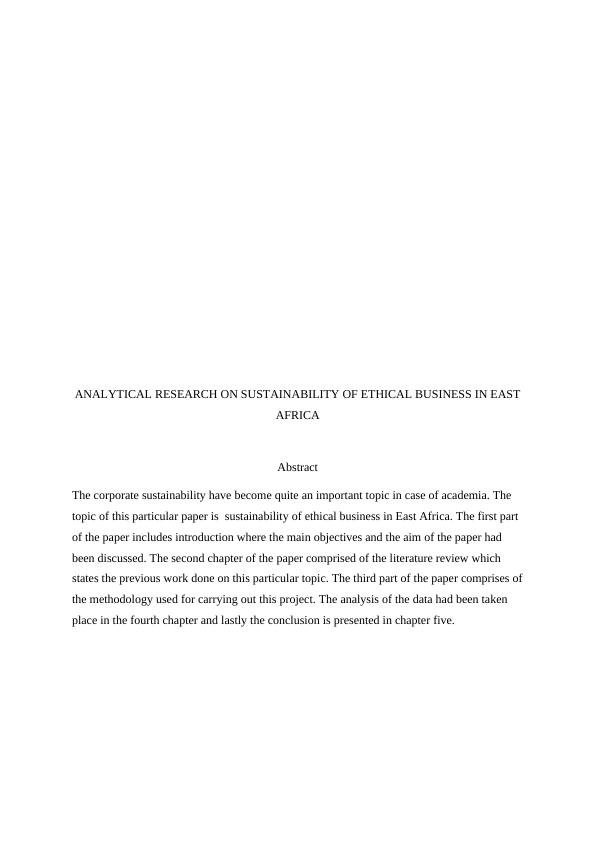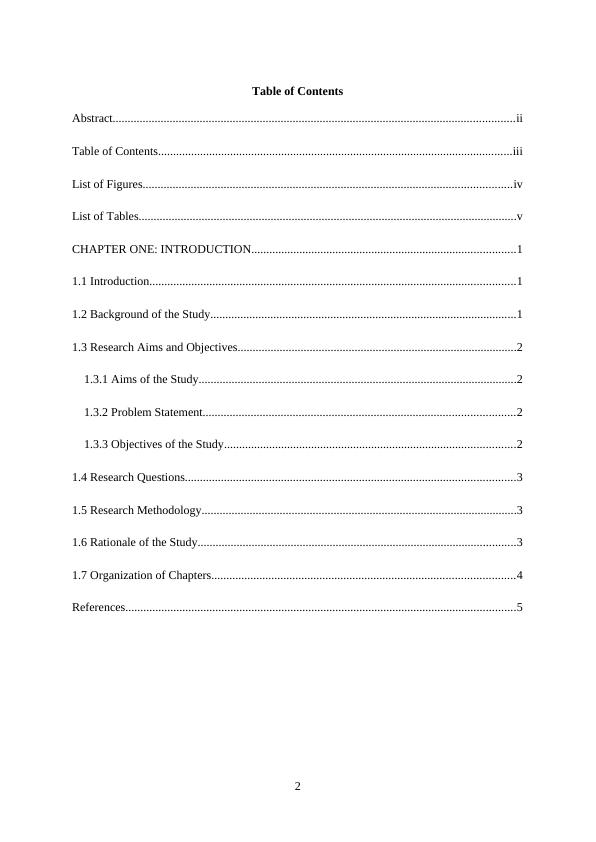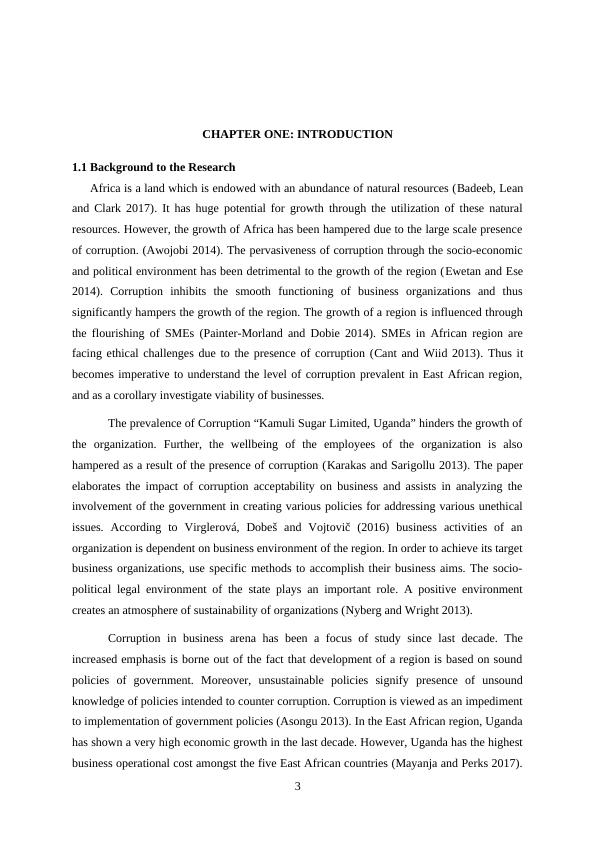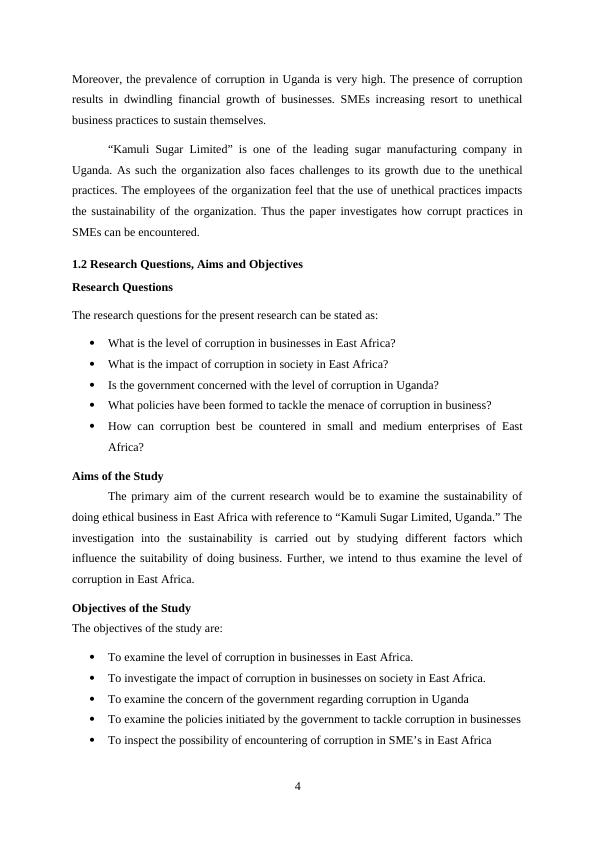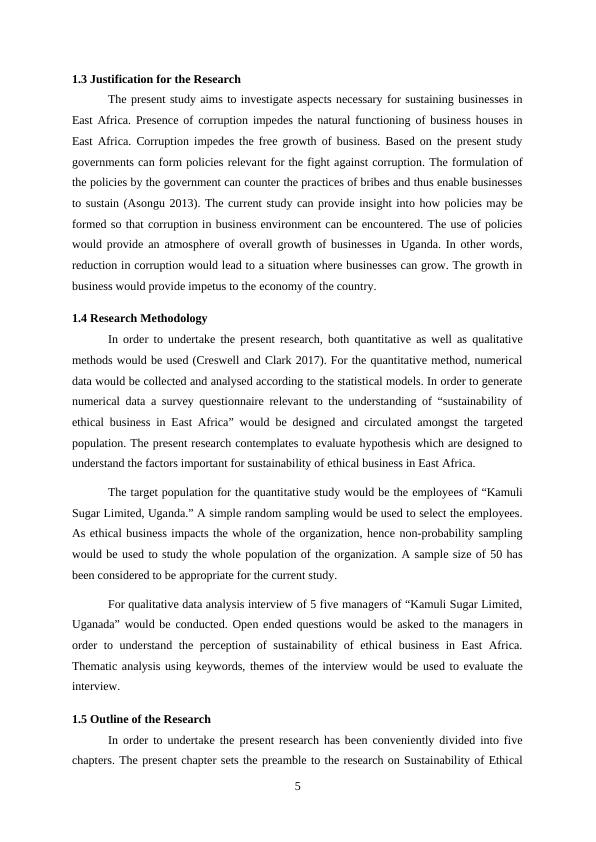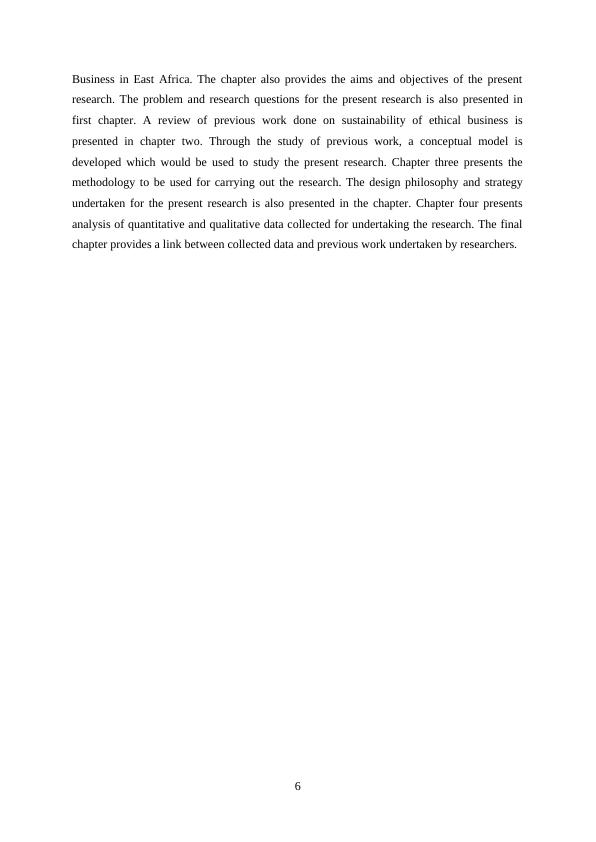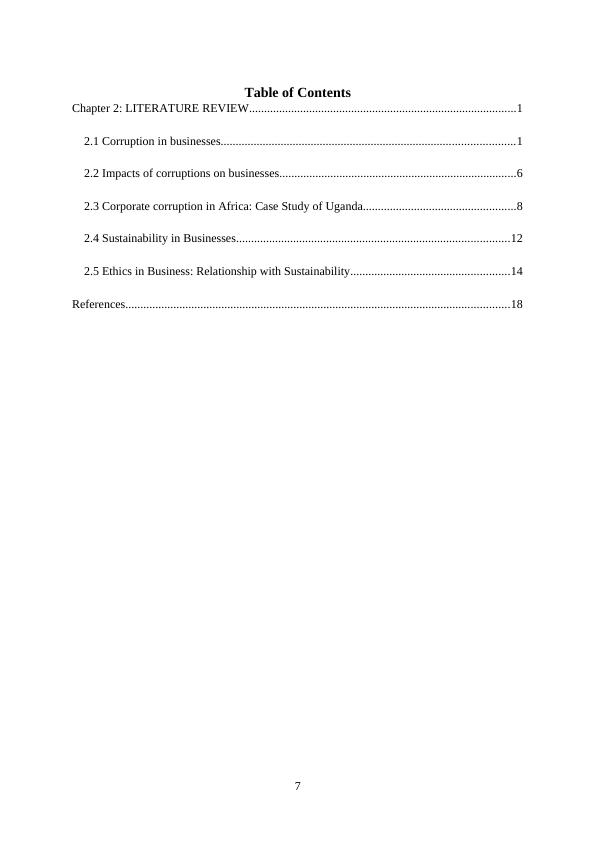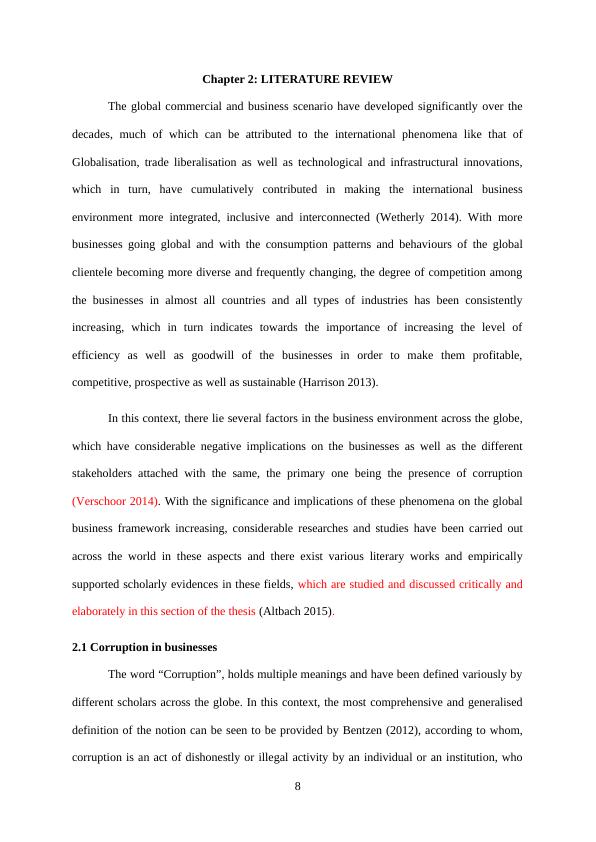Analytical Research on Sustainability of Ethical Business in East Africa
The project proposal focuses on conducting analytical research on the sustainability of ethical business in East Africa, specifically looking at the challenges faced by organizations like Kamuli Sugar Limited in Uganda. The proposal outlines the research question, literature review, methodology, foreseen limitations, and research schedule and timeline.
Added on 2023-06-15
About This Document
Analytical Research on Sustainability of Ethical Business in East Africa
The project proposal focuses on conducting analytical research on the sustainability of ethical business in East Africa, specifically looking at the challenges faced by organizations like Kamuli Sugar Limited in Uganda. The proposal outlines the research question, literature review, methodology, foreseen limitations, and research schedule and timeline.
Added on 2023-06-15
End of preview
Want to access all the pages? Upload your documents or become a member.

